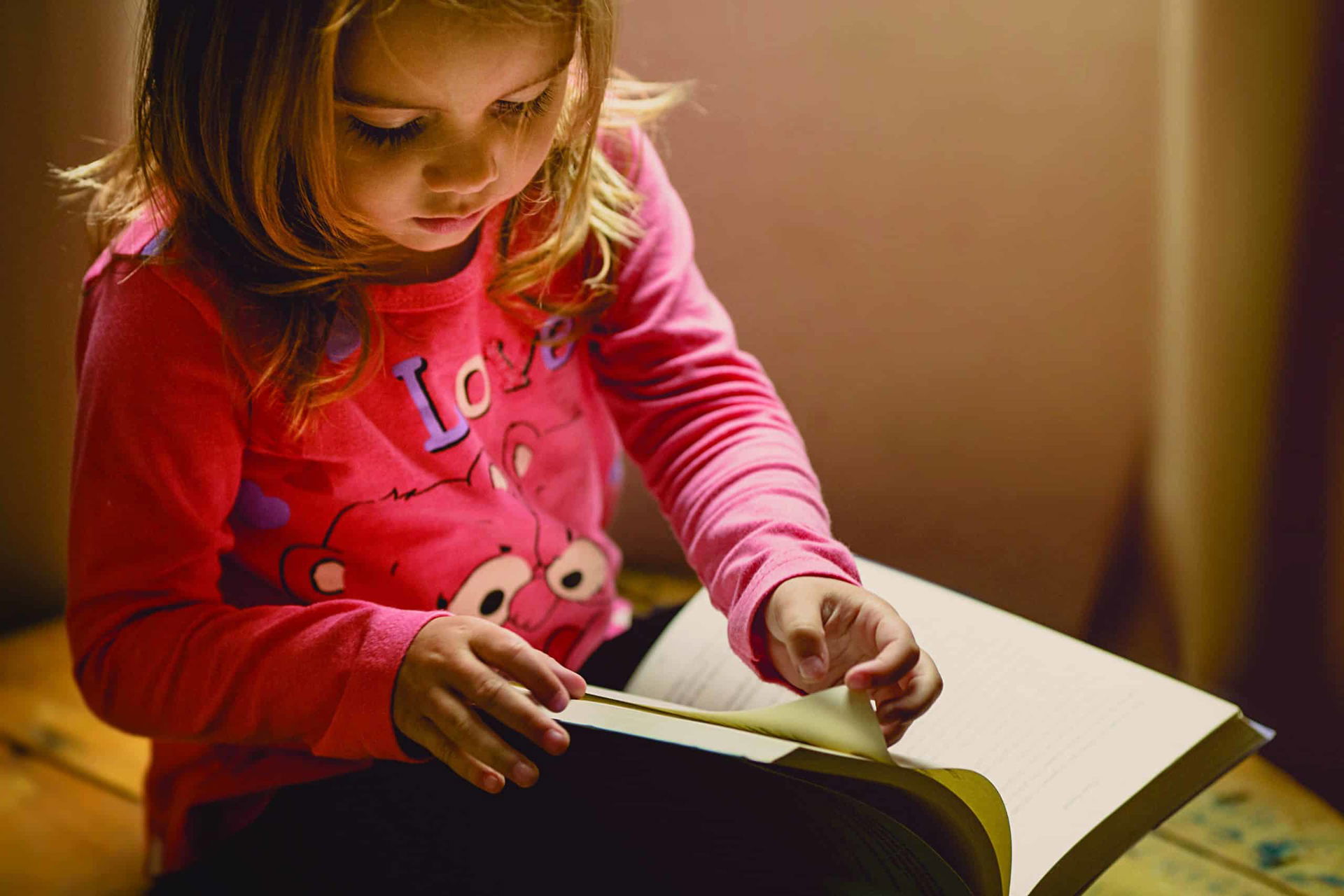How to support a gifted child

Dr Lawrence van Hanswijck de Jong
The second and final article of our gifted child series, here, Dr Lawrence van Hanswijck looks at how to deal with a gifted child.
“I’ve never seen giftedness expire. I’ve seen it get worse – the sensitivity deepens, the perfectionism gets more intense, all this energy erupts, makes more of itself.”
Misdiagnosis of the gifted child
Poor attention, boredom, daydreaming in specific situations, low tolerance for persistence on tasks that seem irrelevant, judgment lags behind the development of intellect, and intensity – these may lead to power struggles with authorities, high activity levels, and questioning rules, customs and traditions.
In the classroom, a gifted child’s perceived inability to stay on task is likely to be related to boredom, curriculum, a mismatched learning style, or other environmental factors. Gifted children may spend from one-fourth to one-half of their regular classroom time waiting for others to catch up — even more if they are in a heterogeneously grouped class.
Their specific level of academic achievement is often two to four grade levels above their actual grade placement. Such children usually respond to non-challenging or slow-moving classroom situations by “off-task” behaviour, disruptions, or other attempts at self-amusement. It is easy to understand how this can be misinterpreted as Attention Deficit Hyperactivity/Impulsivity Disorder (ADHD).
It’s well known among researchers of the gifted that these individuals exhibit higher intensity and increased levels of emotional, imaginational, intellectual, sensual and psychomotor excitability and that this is a typical pattern of development. These characteristics, however, are frequently perceived by psychotherapists and others as evidence of a mental disturbance.
Since the gifted function with relatively high levels of intensity and sensitivity, when they seek therapy, they are frequently misdiagnosed because therapists receive no specialised training in the identification and treatment of persons who have advanced and complex patterns of development.
Therapeutic assessment of gifted persons with asynchronous development heightened levels of awareness, energy and emotional response, and an intense level of inner turmoil. Often this results in a mislabeling of their developmental transition as a personality or attentional disorder. Histrionic, dysthymic, cyclothymic, borderline, narcissistic, ADHD are a few of the diagnostic labels mistakenly used.
The results of this type of misdiagnosis can range from benign neglect to misguided counselling strategies that invalidate and attempt to ‘normalise’ the complex inner process of the gifted. When misdiagnosed gifted clients can be prescribed medication to suppress the “symptoms”, there is the danger that the incredible inner fury of the gifted process will be neutralised, thus minimising the potential for a life of accomplishment and fulfilment. As a result, those who have a lot to offer society are the least likely to get their therapeutic needs met.
I had the luck to meet an exceptional 8-year-old boy. His school didn’t know what to do with him anymore, as his sense of justice was so strong that he would talk back to teachers if he thought they were incorrect and continuously question them. He endured frequent visits to the principal’s office. He would often lie on the carpet, rolling around, joking around with other kids and interfering when he thought he knew better.
The school and parents filled out questionnaires which indicated that he met criteria for ADHD combined type at a severe level. We did his assessment, and it turned out that his ability to sustain attention was very highly developed as was his IQ; he scored at the exceptionally gifted range. Had the assessment not been done, the path might have been very different.
Understanding and adequately diagnosing these children is pertinent.

How to support a gifted child
- When working with the gifted, therapists must address the following intrapersonal issues: The internal stress of being gifted; The emotional trauma of rapid development; The effects of introversion, intensity, perfectionism and extraordinary sensitivity on self and others; The recognition of the symptoms of insufficient mental engagement; The importance of interacting with other gifted persons, as well as channelling and focusing an abundance of physical, sensual, intellectual and emotional energy.
- These children gravitate to other gifted children or children who are several years older. These children are seeking not only intellectual compatibility but also a similar conception and expectation of friendship. It is crucial for parents, teachers and other adults to recognise that gifted children who have few friends within their same-age peer group do not necessarily have social difficulties. Instead, these children may be gravitating towards others who match their developmental age.
- Parents should focus on creating a secure and supportive family environment that allows for autonomy and independence as well as space for psychological and emotional growth. Parents and others should evaluate their expectations of gifted children and alter them according to development. It is easy to expect an intellectually talented child to excel in all areas. However, in some areas a child may perform above average, but in others appear to be completely average. Therefore, expectations of gifted children should vary based upon their development level across various activities and academic areas.
- Remember that these children can be introverts. It is essential to recognise the positive characteristics of introversion and accept these children for who they are rather than attempt to change them into extroverts. Recognise that gifted children tend to be more private, prefer time alone, and often rely on several close friendships. Provide gifted children with opportunities for self-expression and encourage participation in small group activities.
- To help and support gifted children’s challenges with emotional sensitivity, parents and teachers should normalise these experiences. It is vital to teach gifted children that their heightened response to their surroundings is a unique and healthy part of who they are. If we frame emotional intensity as a positive attribute, gifted children can begin to understand and value their emotions. With such understanding, gifted children can recognise and accept the differences between themselves and their non-gifted peers, rather than feeling that they are odd or strange or that their peers are oblivious or noncaring. Such understanding is also essential for non-gifted children for the same reasons.
- Gifted children need to have space where they feel comfortable discussing their emotional responses. Perhaps this is through discussion with parents, adults, or other gifted children. Or, it may be through writing, art or music. Discussing or expressing such thoughts and feelings helps gifted children to accept their emotions valuing them as opposed to rejecting them.
- A highly sensitive gifted child may benefit from volunteering or in some way giving back to others and their community. Through involvement with faith communities, charitable organisations, or scouting, they can help relieve some suffering within their communities, learn empathy and gain the satisfaction of being part of the solution.
- Given that attributes such as perfectionism, introversion and emotional intensity can impact the social development of gifted children in both positive and negative ways, how we understand gifted children can significantly influence both how they see themselves and the perception of others. It is of utmost importance for these children to understand their profile: that leads to normalcy, something they often do not feel.
- Another way to help gifted children feel secure, supported, and accepted is through proper classroom or subject placement. Academic acceleration enables gifted children to be themselves, to feel accepted by peers and teachers and to develop genuine friendships. By skipping a grade or becoming involved in advanced study programs, gifted children find peers with whom they can relate. Such an environment provided gifted children with much-needed interactions with intellectual, artistic, or musically inclined peers of various ages with whom they share common interests and skills. Doing this allows gifted children to develop deep friendships that may not be possible with their same-age peers. At the same time, remaining with their same-age, peers enable gifted children to enhance social skills in general, such as problem-solving and developing realistic expectations of others.
More than academics, what most people need to understand is that some of these children will not necessarily visibly excel in school or one particular area. Dr Michael Piechowski best states the most important message I can give anyone about gifted children:
“Giftedness is not a matter of degree but of a different quality of experiencing: vivid, absorbing, penetrating, encompassing, complex, commanding — a way of being quaveringly alive.”
What needs to be understood more than anything else is that for these children it is not about their academic potential, it is about their innate difference in thinking, honing this and treating it with all the respect that it deserves. These children, more so than the ones on the other side of the infamous bell curve, if left unsupported, can quickly spiral towards mental health issues. This series can by no means capture the full extent of the intricacies of a gifted child; however, what it should highlight is a better understanding of what gifted means as well as highlight the uttermost importance of support in this group of children.
Dr. Laurence van Hanswijck de Jonge, PhD Child Development
https://www.laurencevanhanswijck.com/
Laurence van Hanswijck de Jonge is a Developmental Clinical Psychologist with a background in Neuropsychology who provides developmental and psychological assessments for English speaking children between the ages of 3 and 18 at KidsAbility in the Cayman Islands. Her practice is rooted in Positive Psychology and her belief in the importance of letting our children flourish through building on their innate strengths. She is certified by the University of Pennsylvania, USA, to run the cutting edge resilience building programme for children. She is also a CogMed coach, an evidence-based Computer Training program which sustainably improves attention by training working memory.
Find more articles like this here: www.internationalschoolparent.com/articles/
Want to write for us? You can submit an article for consideration here: www.internationalschoolparent.submittable.com
